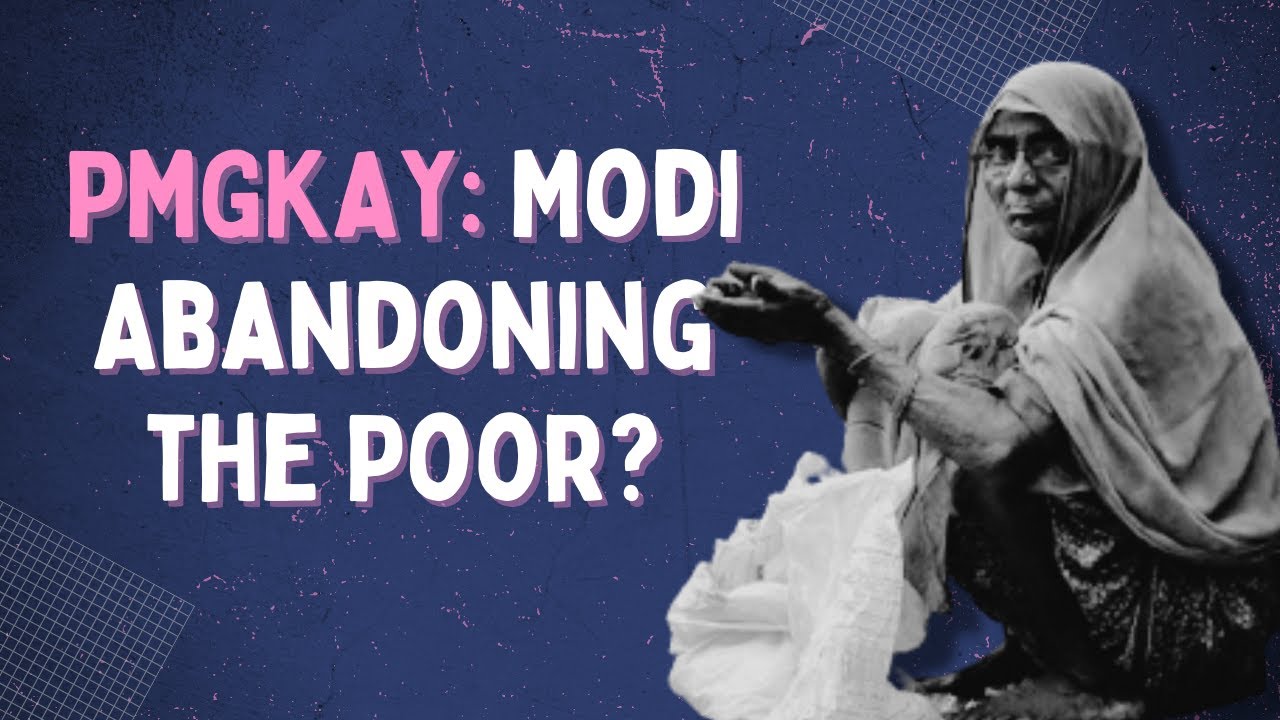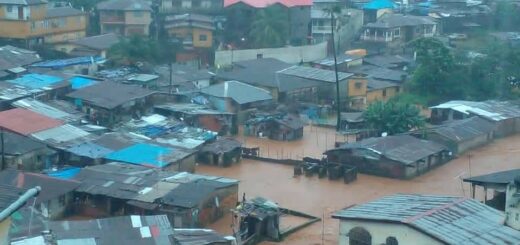Food for Nought: One Step Forward, One Leap Backward
In dit artikel beschrijft de Belgisch-Indiase econoom prof. Jean Drèze hoe het Modi-regime een belangrijke slag toebrengt aan de sociale zekerheid in India.
De PMGKAY (Pradhan Mantri Garib Kalyan Anna Yojana) gaf sinds 2020 gratis graanrantsoenen aan mensen die kaarthouders waren van de National Food Security Act (NFSA). Het PMGKAY-project wordt nu beëindigd. Dat is een grote slag voor de armste inwoners.
Een en ander heeft te maken met de recente (Modi-)trends in de aankoop en distributie van voedselgranen. Drèze schrijft dat er een koerscorrectie nodig was voor PMGKAY, “maar dat rechtvaardigt niet de abrupte en totale stopzetting van het programma zonder enig alternatief”.
India worstelt immers nog steeds met de gevolgen van de covidcrisis. Als PMGKAY moet worden stopgezet, moeten de besparingen opnieuw worden doorgevoerd in andere sociale zekerheidsmaatregelen. De Indiase publieke opinie is zich echter niet voldoende bewust van de radicale aard van het sociale zekerheidskader dat vorm begon te krijgen voor de regering-Modi op de rem ging staan.
Er zijn heel weinig lage- of zelfs middeninkomenslanden die kunnen bogen op een bijna universele toegang tot voedselsubsidies, pensioenen, zwangerschapsvoordelen en schoolmaaltijden, ook al zijn het lage bedragen. In India bestond het.
“Maar tegenwoordig wordt burgers gevraagd hun rechten te vergeten en door te gaan met hun plichten. Deze gedwongen volgzaamheid maakt deel uit van de dood van de Indiase democratie zoals die was.” Premier Narendra Modi van de hindoenationalistische BJP vaart economisch een heel rechtse koers.
The sugar-coated termination of the free grain Pradhan Mantri Garib Kalyan Anna Yojana (PMGKAY) calls for an urgent expansion of alternative social security measures
Much confusion surrounds the Narendra Modi government’s recent move to modify the foodgrain entitlements of National Food Security Act (NFSA) cardholders from 1 January 2023 onwards.
The move actually has two steps, cleverly synchronised. The first step consists of waiving, for one year, the token payments that NFSA cardholders normally make for their foodgrain rations. The second step – the big one – is the termination of the Pradhan Mantri Garib Kalyan Anna Yojana (PMGKAY).

The first step is of little consequence. Remember, the bulk of NFSA cardholders, known as “Priority” households, are entitled to 5 kg of cereals per person month under the NFSA. Until now, they were paying Rs 2 per kg for wheat and Rs 3 per kg for rice.
In 2023, they will get the same amount for free and save Rs 10 to 15 per person per month. This is not going to be of much help. Nor is this step going to cost much to the central government – perhaps Rs 15,000 crore or so.
Politically, however, this small step is a smart move from the government’s point of view. For one thing, it will facilitate the second step by sweetening the pill. For another, it will help the Modi government to claim the entire credit for food subsidies.
An impression is likely to spread that people owe their free food rations to the kindness of the Prime Minister, when in fact, he is just implementing the NFSA and adding a small subsidy of his own. Nothing catches people’s imagination like free food!
In economic terms, it is the second step that really matters. Under the PMGKAY, launched in April 2020, all NFSA cardholders (Priority as well as Antyodaya households) were entitled to bonus cereal rations of 5 kg per person per month, for free. For poor households, this was a significant economic supplement. For the government, it was a major financial burden. Both are over from now.

[fotobijschrift] Prof. Jean Drèze (Department of Economics, Ranchi University): “An impression is likely to spread that people owe their free food rations to the kindness of the Prime Minister, when in fact, he is just implementing the NFSA”.
PMGKAY’s short life must be seen in the context of recent trends in foodgrain procurement and distribution. Ever since the NFSA came into force into 2013, procurement levels have amply exceeded the distribution requirements of the Act – about 60 million tonnes of foodgrain, including 48 million tonnes or so for the public distribution system (PDS) and the rest for various welfare schemes.

That is why foodgrain stocks have been growing by leaps and bounds until two years ago. PMGKAY reversed this imbalance: with PDS offtake roughly doubled, distribution started exceeding procurement and stocks came down, sharply so this year due to poor procurement. Continuing PMGKAY in its present form would have led to an unsustainable depletion of stocks, short of a major increase in procurement.
Even if it were sustainable, PMGKAY would not necessarily be a great way of helping poor households from now on, for two reasons. First, the enhanced quota of 10 kg per person per month (5 kg under NFSA and 5 kg from PMGKAY) was quite close to an average person’s entire cereal consumption – a little less than 12 kg per month according to the second India Human Development Survey.

Many NFSA cardholders get some cereals from other non-market sources as well, such as farming and harvest wages. Quite a few must have cereal reserves by now. The more PDS grain goes to people who have enough already, the more inefficient it becomes as a form of economic support (even if they are able to resell the surplus).
Chhattisgarh has done well with an intermediate norm of 7 kg per person per month, and there are also other ways of enhancing food security, such as adding pulses and edible oil to the PDS basket or widening the net.
Second, there is circumstantial evidence of massive corruption in PMGKAY, in some states at least (Jharkhand for one). The main reason is that many people were not clear about their PMGKAY entitlements, enabling corrupt PDS dealers to take advantage of the confusion.
In short, some course correction was due. But this does not justify the abrupt and total discontinuation of the PMGKAY, without any alternative other than the symbolic waiver of NFSA charges.
Poor households are still struggling with the fallout of the Covid-19 crisis. PMGKAY was a critical relief measure in these hard times. If it is to be discontinued, then the corresponding savings (up to Rs 1.8 lakh crore per year or so) should be redeployed in other social security measures.
For instance, the savings could be used to expand the coverage of the PDS. Remember, more than 100 million persons are unfairly excluded from the NFSA because the central government persists in using outdated 2011 population figures to determine foodgrain allocations.
More than 40% of the population today is outside the NFSA net, including many poor households. Adding 100 million persons at standard NFSA rates of 5 kg per head per month would require just 6 million tonnes of foodgrain per year. This is perfectly sustainable. Indeed, with the discontinuation of PMGKAY, foodgrain stocks are all set to balloon again.

Other social security measures are also overdue. For instance, as 51 economists recently argued in an open letter to the Finance Minister, the National Social Assistance Programme (NSAP) deserves a much larger budget.
So do midday meals and the Integrated Child Development Services (ICDS), both grossly defunded in the last eight years. The central government would also do well to lift the illegal and discriminatory restriction of maternity benefits to hand-picked children, and to raise the benefits well above the outdated NFSA norm of Rs 6,000 per child.

The Indian public is insufficiently aware of the radical nature of the social security framework that had begun to take shape before the Modi government slammed the brakes.
The forthcoming Union Budget for 2023-24 is a good opportunity to put these measures in place and make up for the discontinuation of the PMGKAY. More likely, the government will take the view that the crisis is over and that relief measures are now unnecessary.
Very few developing countries, if any, have near-universal entitlements to food subsidies, old-age pensions, maternity benefits, school meals and fallback employment in rural areas (the benefits are low in each case, but they can be raised over time).
This framework built on the idea that social security is a right of all citizens and not just of the organised working class. Today, unfortunately, citizens are asked to forget their rights and get on with their duties. This enforced docility is part and parcel of the death of Indian democracy, such as it was.
Jean Drèze
The author is Visiting Professor at the Department of Economics, Ranchi University, India.
Dit artikel verscheen in januari 2023 op de website van The India Forum.
This article is being co-published with Scroll.in: ‘What free food rations hide: A rollback of social security in India’ https://scroll.in/article/1040987/what-free-food-rations-hide-a-rollback-of-social-security-in-india
Lees verder (inhoud febuari 2023)


